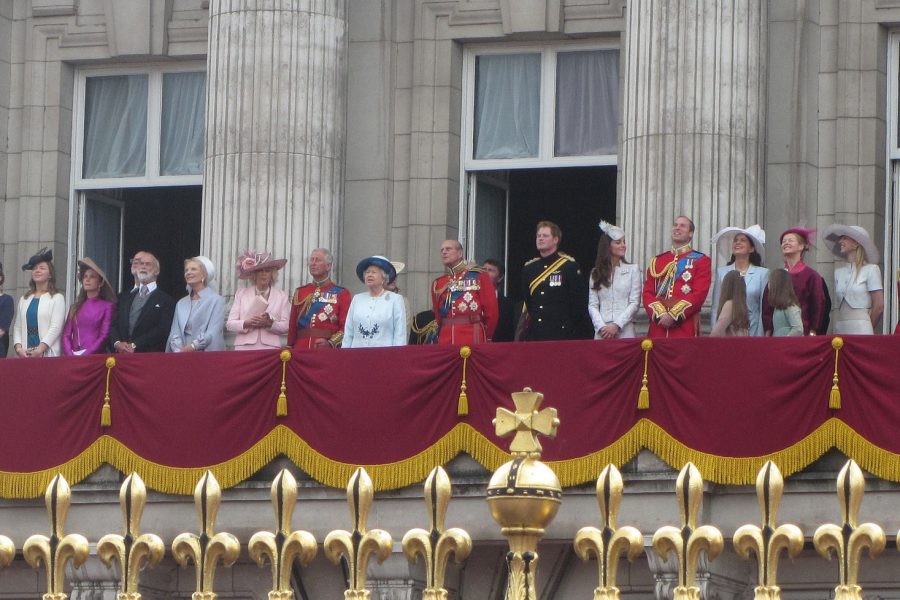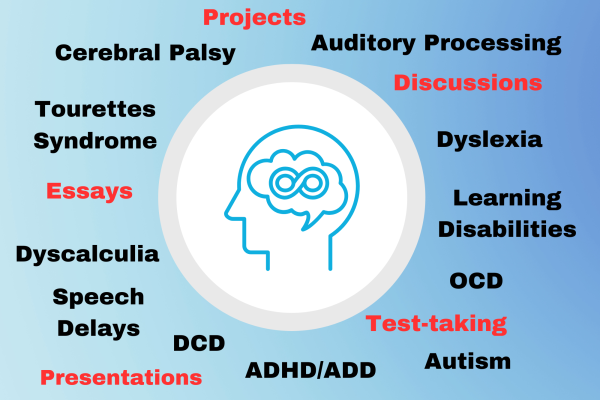#TeamSussex: Why the British royal family’s drama is more than a tabloid story
Photo credit: Alex David Baldi from Creative Commons, licensed for reuse
The British royal family stands on the balcony of Buckingham Palace in 2014. The Windsors have undergone a difficult year, in many ways characteristic of the social changes around them.
This spring has been a particularly tumultuous time for England’s royal family. A crown jewel of European monarchy, the Windsors, have experienced fallout from Meghan Markle and Harry Mountbatten-Windsor’s interview in March and the death of 99-year-old Prince Philip on April 9. Perhaps these events, and the relative instability of the royal family, signal larger changes in Western society and how we view the upper class.
Meghan Markle is undoubtedly our generation’s Diana. She is a symbol of changing times and attitudes. But while Diana was naturally rebellious towards the constrictive systems imposed by royal tradition, Markle disrupted the norm simply by being herself.
A person of color, a divorcee and a woman with a younger husband, Markle’s existence as a Duchess was, in itself, something new for the royal family. For the publicists of the royal family, referred to as “the firm” in Markle and Windsor’s interview, Markle’s identities presented a tremendous opportunity to connect with a British public and global audience growing increasingly detached from the royal family’s traditionalism and privilege. Further, non-white Brits and members of the Commonwealth saw for the first time someone who looked like them as part of the institution that iconizes their country.
British tabloids and gossip newspapers, in their need for fast printing and high readership, quickly published a flurry of negative stories about Meghan. Headlines ranged from the over-reaching “Meghan’s beloved avocado linked to humans rights abuses and drought concerns, millennial shame” to the upsetting and downright random “Royal wedding: How Meghan Markle’s flowers may have put Princess Charlotte’s life at risk.”
But don’t all royal family members get negative press? A study published in the Guardian says few get as much as Markle. In an analysis of 2019 tabloid articles, 72% of Markle’s coverage was negative. Over the same time frame, Prince William’s wife, Kate Middleton, received 31% negative press.
Although this is disturbing, especially considering Markle’s racial background, a multiracial Black woman, compared to Middleton’s, who identifies as white, there is also a level of responsibility placed on the royal family’s publicists to shield members of the royal family from libelous or irrelevant negative press. In her interview, Markle said her one regret is “believing them [the firm] when they said [she] would be protected.”
It’s clear that the publicists for the royal family didn’t refuse Meghan’s requests in the interest of press freedom. Much of the coverage was incorrect or misleading. Worse, there was clear suppression of coverage on Prince Andrew‘s close relationship with known pedophile and sex trafficker Jeffrey Epstein and claims that Andrew himself sexually abused an underage girl on Epstein’s private island.
The simple fact that the global public is still arguing over whether Kate Middleton made Meghan Markle cry or the other way around and not thinking about consequences for Prince Andrew’s behavior reveals a deep imbalance in royal family coverage.
Markle shared deeply personal facts about her time as a senior member of the royal family. She discussed her suicidal thoughts, feelings of being trapped in the family and in her own home and concerns voiced to them about their one-year-old son Archie’s skin being too dark. Instead of thinking about what Markle’s experiences mean about the institution and what it truly stands for, the press and public are still debating if what she said is true. It almost is assumed that Markle is a liar, and she needs to have proof that she was suicidal or treated poorly.
As a global community, we have been down this road before. The constant press, unfair questioning and the “stiff upper lip” mentality led to the tragic death of Harry’s mother, Diana, a generation ago. Now, we have a chance to change the story. Instead of intellectualizing little details of Markle’s story, we as a global community must think about what it says about the monarchy as an institution. We must attempt to understand and even change what the Mountbatten-Windsors stand for in a world no longer ruled by luxe lifestyle and unwavering tradition.

Rio Hundley was involved in the Oracle from 2017-2021. She graduated in 2021. She was promoted to Sports Editor in 2019 and became Features Editor in 2020....











Cora Suos • Apr 23, 2021 at 4:37 pm
In my opinion when she decided to marry Harry,Meghan should have known what’s coming. The “firm” couldn’t even protect Diana, whose background was so starkly different from Meghan’s. Doing the interview on Oprah I think was a mistake and selfish on her part. The interview pitted Harry against his family, the royal family. I wonder if these problems were voiced out in closed doors with the royals, which would have been preferred both by the family and the people of Great Britain who pledge their allegiance to the monarchs being a Constitutional Monarchy. She has created a divisive atmosphere among Britons.
It’s a brilliant article Rio, I must say. I’m very proud of you!